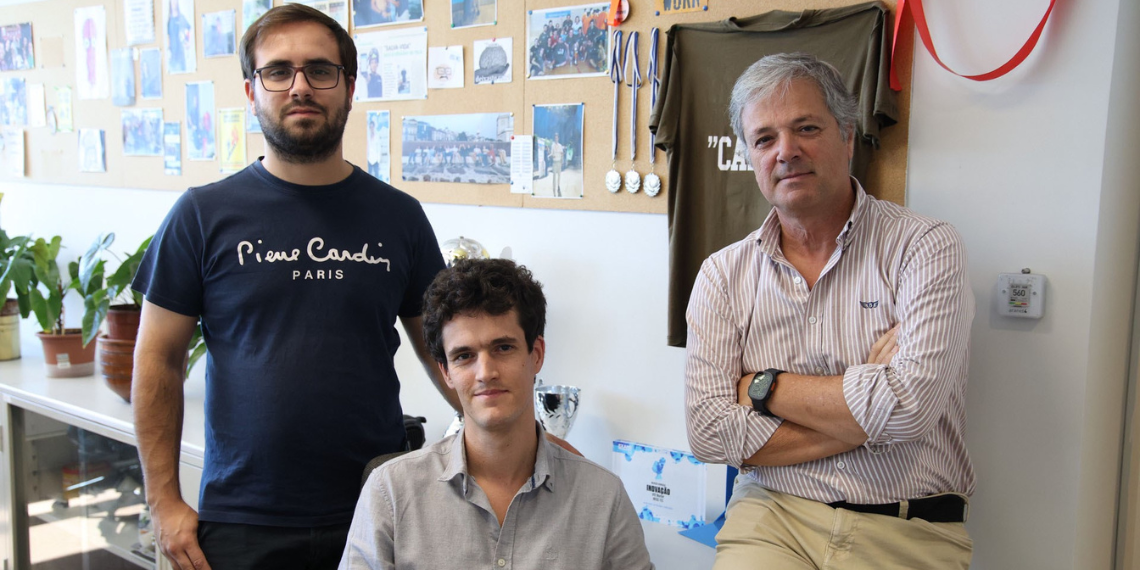It is an innovative prototype that combines a belt with sensors and a digital application to detect, quantify and locate a baby’s movements in real time. Designed for home use, it is called WeFetal and has just been recognised by BIP PROOF, a programme run by the University of Porto to support the development of proof-of-concept projects.
“WeFetal has the potential to transform prenatal care by offering pregnant women an accessible, comfortable and reliable solution to monitor their baby’s movements at home,” explained Duarte Dias and João Paulo Cunha. According to the INESC TEC researchers, it is an innovative prototype for monitoring fetal well-being, towards reducing risks associated with pregnancy.
The system consists of a comfortable belt equipped with sensors and a digital app, which allows for the collection of clinical data – information that can then be used by healthcare professionals. “Moreover, it provides greater peace of mind for mothers, ensuring more robust clinical information for doctors. By detecting early signs of fetal distress, the technology can contribute to reducing avoidable stillbirths and improving maternal healthcare,” the researchers added.
 The solution was awarded by BIP PROOF, which supports the development of proof-of-concept projects at the University of Porto, promoted by promovido U.Porto Inovação. The prize (worth €10K) will, according to the WeFetal team, be “essential for taking the next step towards the market.” This support will allow clinical trials to be conducted with pregnant women in hospital settings, thereby improving the system’s performance and validating it in real-world scenarios – advancing towards a higher level of technological maturity.
The solution was awarded by BIP PROOF, which supports the development of proof-of-concept projects at the University of Porto, promoted by promovido U.Porto Inovação. The prize (worth €10K) will, according to the WeFetal team, be “essential for taking the next step towards the market.” This support will allow clinical trials to be conducted with pregnant women in hospital settings, thereby improving the system’s performance and validating it in real-world scenarios – advancing towards a higher level of technological maturity.
This is not the first time that INESC TEC’s solutions have been recognised by BIP PROOF. Back in 2021, the SpecTOM project was also among the winners and in 2023 the SKD project was also recognised by this programme, which aims to reward proof-of-concept initiatives that foster progress towards the socio-economic valorisation of promising research results.
In this edition the programme supported 11 projects.
The researchers mentioned in this news piece are associated with INESC TEC and the Faculty of Engineering of the University of Porto.


 News, current topics, curiosities and so much more about INESC TEC and its community!
News, current topics, curiosities and so much more about INESC TEC and its community!